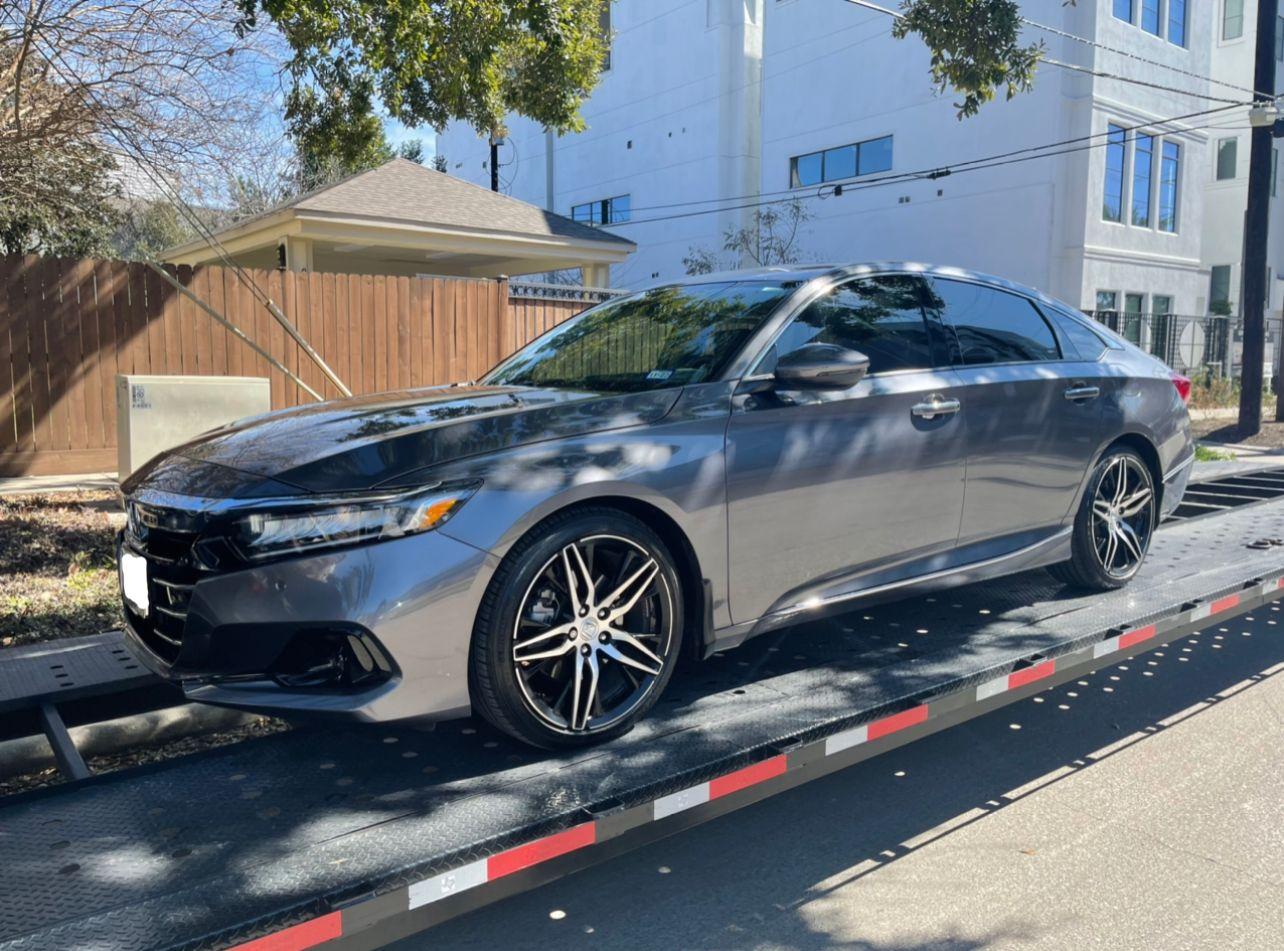Did you know that the trucking industry in the United States represents a $700 billion business? Or that US trucking accounts for more than five percent of all full-time jobs in America? As the saying rightly goes, if you bought it, a truck probably brought it.
As it turns out, the US remains hugely dependent on the trucking industry and with good reason. Approximately 71 percent of all freight in the nation gets moved via trucks. No wonder the industry employs millions of truckers!
Without the vital transportation lifelines they create, everything from gasoline to milk would be in short supply. Although truck transport has been around for a long time, it remains a dynamic industry driven by consumer needs.
Keep reading to learn more about the industry and whether the truck transport business is right for you.
What is Truck Transportation?
When it comes to over-the-road transportation of cargo via motor vehicles, the truck transport subsector handles the hauling. This subsector can be divided into specialized freight trucking and general freight trucking.
What do these categories denote? They relate to differences with:
- The type of load carried
- The equipment utilized
- Scheduling
- Terminal
- Other networking services
Specialized freight transportation handles the movement of cargo that requires an expert touch. This is generally because of its weight, size, or other characteristics.
As for general freight? It can be contained in a van trailer and is usually palletized. A wide variety of cargo gets moved this way every day.
What Are the Prospects for the Truck Transport Industry?
As freight volumes continue to rise, trucking transport will remain in high demand. After all, trucks perform the bulk of cargo transport across America. They include everything from single-unit trucks to tractor-trailer combinations.
These impressive machines get utilized in a wide variety of areas. They handle waste hauling, urban pickup, delivery, and construction.
No universally accepted distinction exists when it comes to “heavy-duty” and “freight truck” as compared to a truck used for personal travel. Differences exist when it comes to the number of tires and weight, though.
In 2013, there were a total of 8.1 million heavy-duty single-unit trucks and 2.5 million truck tractors in the US.
How Much Do Truckers Get Paid
Generating revenue remains a primary factor when it comes to a new job. For truck drivers, a variety of factors impact what they make. These factors include the type of freight hauled, where the driver lives, and the years of experience.
How much do truckers typically make? According to TruckDriverSalary.com, the national base salary starts at $37,000. The max salary hovers around $77,000, and the average trucker makes approximately $57,062.
After a trucker gets a few years of experience under their belt, a wide range of opportunities will open up for them. These include the chance to be an owner-operator. Pay grades rise with these changes.
Factors Impacting Truck Transport Paychecks
As for other factors, the further you’re willing to drive, the more money you’ll make. Although assignments across shorter distances prove the most convenient, they equate with lower pay rates than long hauls.
Mileage also makes a big difference if you’re employed by a business that pays a cent-per-miles rate. Obviously, the more miles you log the more money you’ll rake in. That said, you must also consider slow traffic.
Freeway jams will decrease the number of miles you can put in. As a result, it’ll also impact the amount of money you’ll earn.
You’ll also want to consider the type of freight that you haul. Cargo type can have a significant impact on your salary as a truck driver. Whether you drive for a company, go the owner-operator route, or start a trucking company, you must understand freight.
Different freight types include:
- Step deck trucks
- Flatbed trucks
- Reefer trucks
- Dry vans
- Auto carriers
- Dump trailers
- Tankers
Let’s take a brief look at each type of truck transport and how it affects a truck driver’s overall salary.
STEP DECK TRUCKS
Like flatbeds, step deck truck beds appear flat and open. Unlike flatbed trucks, however, step decks have a lower part closer to the ground.
This lower part allows for taller items to sit closer to the ground. The result? Avoidance of hazards such as bridge clearances.
FLATBED TRUCKS
Flatbed trucks are leveled off and open with no top or sides to the trailer. This design permits them to load and unload freight too large to go inside a standard trailer.
For example, you’ll often see these on roadways transporting large manufactured items. They also carry construction goods and various oversized loads.
DRY VANS
Dry vans are common to America’s freeways and highways. These standard 53-foot trailers transport consumer products, electronics, home goods, and more.
To protect these goods from the elements, the trailer is enclosed.
REEFER TRUCKS
Reefer trucks or refrigerated trucks rely on a temperature-controlled trailer to transport goods that must remain at a consistent temperature. These range from foods to chemicals, pharmaceuticals to other medical materials.
AUTO CARRIERS
Another common sight on freeways? Auto carriers. You’re most familiar with open carriers that can haul up to a dozen cars at a time to dealerships and other facilities, including private residences.
But there are two main types of car carriers, enclosed haulers and open car haulers.
TANKERS
Tankers are unmistakable due to the cylindrical shape of their trailers. They haul liquids, such as fuel. Some of the liquids they haul prove highly flammable or even explosive. So, while drivers get rewarded with higher pay, the risks remain real.
DUMP TRAILERS
As the name suggests, dump trailers include a lift that can incline. This allows loads to be easily dumped.
What Are Some Jobs Associated with Truck Transport?
You’ll find a wide variety of opportunities and careers in the truck transport industry. These include opportunities for everything from a student looking to get experience in the field to a team-trucking gig. The opportunities are limitless.
One area that’s not as well-known but proves lucrative is intermodal trucking. In fact, it’s currently one of the most in-demand jobs in the industry. It also comes with various advantages and benefits.
If you don’t mind moving around, then intermodal trucking might represent the ideal business to get into.
Intermodal transport involves the movement of freight via intermodal shipping containers. The containers may be transported in any of the following ways:
- Truck
- Train
- Ship
- Other modes of transportation
What are intermodal containers? Large, rectangular containers, they get transferred between different types of transportation. You’ll often see them at shipping ports or loading docks, for example.
Understanding Intermodal Transport
Designed to handle any weather, intermodal transport containers are portable enough to travel on different types of vehicles. You’ll generally find that truck intermodal transport is often preceded and followed by ocean or rail segments.
You’ll also see companies that offer specialized trucking between rail terminals, inland shipping docks, and ocean ports. Known as drayage, dedicated companies typically provide this service.
What do some of the jobs handled by drayage companies look like?
They include picking up equipment from a shipyard. This freight is then loaded and taken by truck to a railroad yard. From there, it’s loaded onto a train car and shipped to a final destination.
Once removed from the train, it gets delivered by truck to a customer. In other words, think of intermodal truck transport as the service that connects the dots for major transportation and ensures everything runs smoothly and efficiently.
Which Benefits Are Associated with Intermodal Trucking?
For those interested in starting a truck transport company, the intermodal subset represents a lucrative specialization area. Why? For starters, you’ll find high demand for this service.
Second, you can maintain a surprisingly normal schedule. After all, every day is shipping truck repeat. Although many people assume the trucking life involves being away from family and home for long periods of time, that’s not necessarily the case.
Intermodal transport comes with relatively normal hours. Oftentimes, you can set up shop close to home. That means the ability to be home on weekends and nights.
You’ll work the same shift that employees in the railroad yards and the shipyards do, which is generally 9 to 5. In other words, you’ll enjoy a proper work/life balance when you get into business with repeat trucking shipping.
Other Advantages of Intermodal Trucking Work
What’s another fantastic advantage of intermodal trucking? The ability to maintain your rig at local shops.
Because you can remain close to home, you’ll never have your truck far from sight or mind when it requires maintenance or repairs.
The same goes for hauls. You won’t be stuck for days until your haul gets unloaded. Instead, you’ll enjoy quick and easy offload times and mostly day trips. There are few better careers for someone who wants to see the world yet stay close to loved ones.
The intermodal approach also helps to combat the current trucking shortage in the US. For example, intermodal trains can handle 300+ containers per trip, reducing the number of tractor-trailers on the road. Yet, cargo still arrives rapidly and smoothly.
What Type of Driver Do You Want to Be?
Besides making decisions about the type of cargo you want to haul and how much you’ll make, you must also think about driver type. After all, some drivers get paid more than others based on their expertise.
Different driver types include:
- Local drivers
- Team drivers
- OTR drivers
- Owner-operators
Local drivers include intermodal drivers. They transport goods over a short distance and typically get to go home each night. Deliveries get assigned at a warehouse or terminal. Because they go shorter distances, they often get paid less.
Team drivers drive in tandem with one another. That means no more lonely hauls. You’ll most likely get paid more because you’ve got longer distances to go. Best of all, you get paid by overall mileage rather than just the part you drove.
OTR drivers go long distances. They sleep in their trucks and are often away from home for weeks at a time. They enjoy a salary around the national average.
Last but not least, owner-operators own their own trucks. As a result, they work as entrepreneurs. Some increase to run small fleets, employing several drivers at a time.
This type of truck driver comes with lots of overhead upfront. But the payoffs are even richer in the long run. Some drivers make upwards of $100,000 annually.
How Much Does It Cost to Ship a Truck Cross Country?
If you’re ready to dive into the truck transport business, you may have basic questions about how to get started. For one, you may wonder how much it costs to ship a truck cross country. Answering this question depends on the answers to a variety of questions.
Transporting a truck is a complicated task that requires plenty of know-how and proper handling techniques. You must work with a truck shipping company that understands different equipment configurations, whether we’re talking a semi-truck or utility truck.
Get a Truck shipping Quote
As you can see, there are many tantalizing reasons to consider a career in truck transport. Not only will you position yourself to earn more money, but you could stoke your entrepreneurial fantasies if you choose to go the owner-operator route.
Of course, purchasing a semi-truck can feel overwhelming. It comes with a significant learning curve. What’s more, you have to worry about secondary considerations such as transportation of your new truck.
Where should you start when it comes to securing a decent rig and launching a new business? Fortunately, you don’t have to go it alone.
We can help. Contact us today to discuss your truck transport company needs and to get a complimentary, no-obligation truck shipping quote.



